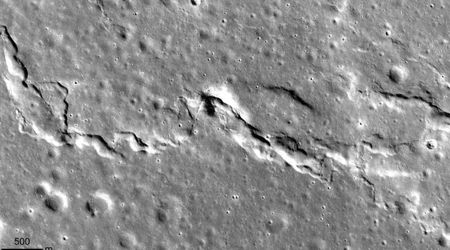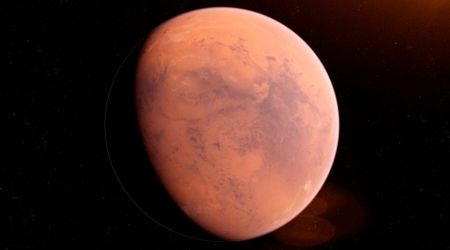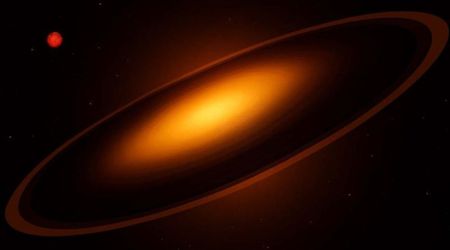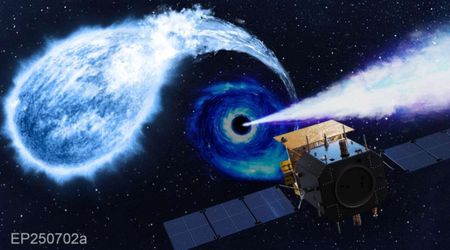The entirety of the US history happened within just one Pluto orbit

In the grand timeline of the universe, human history is but a fleeting moment. This stark reality comes into sharp focus when we consider this astonishing fact: the entire history of the United States of America has unfolded within just one orbit of Pluto around the Sun.
From the Declaration of Independence in 1776 to the present day, the American saga of liberty, innovation, and cultural evolution has unfolded within just one Plutonian year.
To help you visualize this mind-blowing fact, here are 13 important moments in U.S. history aligned with Pluto's orbit.
Declaration of Independence (1776) - 0% of Pluto’s orbit
The Declaration of Independence in 1776 was a revolutionary moment, not just for the Thirteen Colonies, but for the world. It represented a bold assertion of the right to self-governance and liberty. Key figures like Thomas Jefferson, John Adams, and Benjamin Franklin played pivotal roles in drafting this historic document.
Constitution Ratified (1788) - 4.8% of Pluto’s orbit
In 1788, the United States Constitution was ratified, marking the establishment of a groundbreaking system of government based on checks and balances. This period was also significant in astronomy, with William Herschel's discovery of NGC 457, enhancing our understanding of celestial bodies. The Constitution's ratification debates, involving figures like James Madison and Alexander Hamilton, laid the foundation for American political life.
Louisiana Purchase (1803) - 10.9% of Pluto’s orbit
The Louisiana Purchase in 1803 was a monumental event, doubling the size of the young nation and having profound implications for its future economic and geopolitical trajectory. Concurrently, Heinrich Wilhelm Matthäus Olbers discovered the asteroid 2 Pallas, marking a significant advancement in the field of astronomy.
Civil War (1861-1865) - 34.2% of Pluto’s orbit
The Civil War, from 1861 to 1865, was a defining moment in American history. It was a complex conflict driven by issues like states' rights and slavery. This era reshaped the nation's identity and laid the groundwork for future civil rights advancements.
Birth of Percival Lowell (1885) - 43.9% of Pluto’s orbit
Percival Lowell, born in 1885, would later become instrumental in the search for planets beyond Neptune. This period was also marked by astronomical milestones like the observation of the Great Comet of 1882 and S Andromedae, a supernova in the Andromeda Galaxy, expanding our cosmic awareness.
Wright Brothers' First Flight (1903) - 51.2% of Pluto’s orbit
The Wright Brothers' first powered flight in 1903 heralded the age of aviation. This groundbreaking achievement paralleled significant advancements in astronomy, including the first photographs of Jupiter's moons, Ganymede and Callisto, showcasing a period rich in scientific exploration and discovery.
Women's Suffrage (1920) - 58% of Pluto’s orbit
The ratification of the 19th Amendment in 1920 was a victory for women's rights, culminating a decades-long struggle for suffrage led by figures like Susan B. Anthony and Elizabeth Cady Stanton. In the same era, the Great Debate between Harlow Shapley and Heber Curtis took place, a pivotal moment in our understanding of the universe.
Discovery of Pluto (1930) - 62.1% of Pluto’s orbit
1930 was a watershed year in the field of astronomy with the discovery of Pluto by Clyde Tombaugh. This discovery significantly expanded our understanding of the solar system, adding a new, distant member to the family of planets known at the time.

Pearl Harbor / Entry into World War II (1941) - 66.5% of Pluto’s orbit
In 1941, a pivotal moment in American history occurred with the attack on Pearl Harbor by Japanese forces. This event thrust the United States into the tumultuous arena of World War II, marking a significant turning point in the conflict.
The U.S. entry into the war had profound implications for the course of the war and the post-war world order, catalyzing a massive mobilization of resources and manpower in a united effort to fight against the Axis powers.
Civil Rights Act (1964) - 75.8% of Pluto’s orbit
The passing of the Civil Rights Act in 1964 was a significant stride towards racial equality in America, propelled by the Civil Rights Movement and figures like Martin Luther King Jr. In the same period, the successful Mariner 4 flyby of Mars marked a milestone in space exploration.
Moon Landing (1969) - 77.8% of Pluto’s orbit
The Apollo 11 mission's success in 1969, which saw Neil Armstrong and Buzz Aldrin walk on the moon, was a monumental achievement in the space race and human exploration. This event not only demonstrated incredible technological prowess but also united people worldwide in a shared moment of awe and inspiration.
End of the Cold War (1991) - 86.69% of Pluto’s orbit
The conclusion of the Cold War in 1991 signified a major transformation in global politics. This era marked the dissolution of the Soviet Union and a significant reduction in nuclear tensions, reshaping the geopolitical landscape.
The period also witnessed the launch of the Compton Gamma Ray Observatory, a pivotal development in space exploration and astrophysics. This observatory played a crucial role in our understanding of cosmic gamma-ray emissions, offering insights into the most energetic phenomena in the universe.
New Horizons at Pluto (2015) - 96.3% of Pluto’s orbit
NASA's New Horizons spacecraft reached Pluto, providing the first close-up images of the dwarf planet and its moons, coinciding with a significant moment in space exploration history.
July 4, 2024 - Pluto completes its orbit around the sun since the day the US was founded.
On July 4, 2024, a remarkable celestial milestone coincides with a significant historical anniversary. As the United States celebrates its 248th Independence Day, Pluto will complete its first full orbit around the Sun since the signing of the Declaration of Independence in 1776.
Over the span of nearly two and a half centuries, the United States has witnessed profound transformations, evolving from a collection of colonies into a global superpower.









